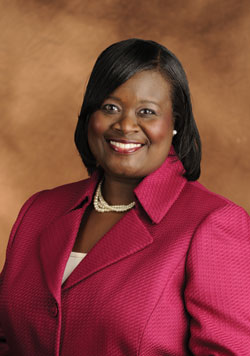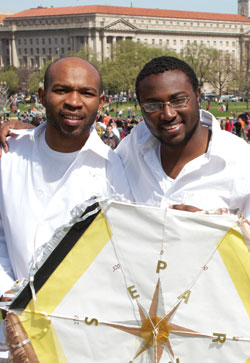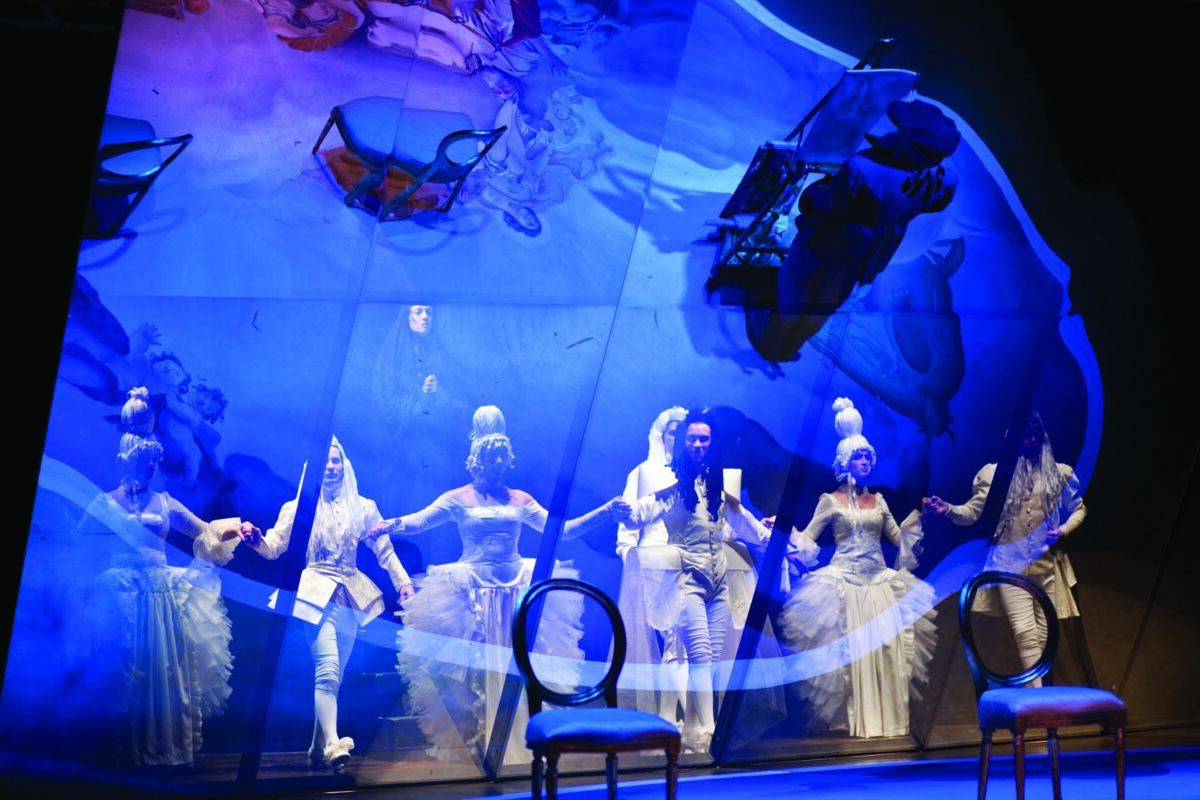A university can offer up a lot of drama: joys and terrors, dark mysteries and the quest to unravel or unlock them.
The issue that you have in your hands is chock-full of such drama. There is drama in the most literal sense: the amazing journey taken by students, faculty and staff in UMBC’s Theatre Department to the John F. Kennedy Center for the Performing Arts in Washington, D.C.
Led by associate professor Eve Muson, the department took its Fall 2010 production of Lynn Nottage’s smart and provocative play Las Meninas all the way to selection as one of only four university productions in the final round of the American College Theatre Festival. (Just think of it as the “Final Four” of U.S. college and university theatre.)
Careful planning got the cast and crew of Las Meninas to the Kennedy Center, but that didn’t mean that there weren’t thrills and (near) spills in a one-day load-in, set construction, rehearsal and performance. But you’ll need to read the story to find out how the Las Meninas gang made it work – and just how Muson’s vision of the play will live on in the forthcoming professional production of Las Meninas she will direct at Columbia’s RepStage next year.
Another drama detailed in this issue’s story by Elizabeth Heubeck ’91 is darker and more destructive, yet it also celebrates the role that historians and cultural scholars can play in reclaiming memory. When Suzanne Ostrand-Rosenberg – a professor of biological sciences and the Robert and Jane Meyerhoff Chair of Biochemistry – found a box of letters kept by her mother from Nazi-era Germany, the discovery led not only to a nearly decade-long search for her family’s history, but also an illuminating new work of scholarship on the Holocaust by Rebecca Boehling, a UMBC professor of history and director of the James T. and Virginia M. Dresher Center for the Humanities, and Uta Larkey, a professor of German and modern languages at Goucher College.
Nature has its dramas as well – and few of them are as powerful and destructive as hurricanes. So UMBC Magazine asked longtime USA Today weather writer Jack Williams to talk with Jeffrey Halverson – an associate professor of geography and environmental systems and a researcher at Joint Center for Earth Systems Technology (JCET) – who is one of America’s preeminent hurricane trackers. Halverson’s work not only sheds light on how these most impressive storms form and intensify, but his findings may help scientists and local governments take actions that will save lives when hurricanes do inevitably sweep through our area.
— Richard Byrne ’86
Tags: Summer 2011



